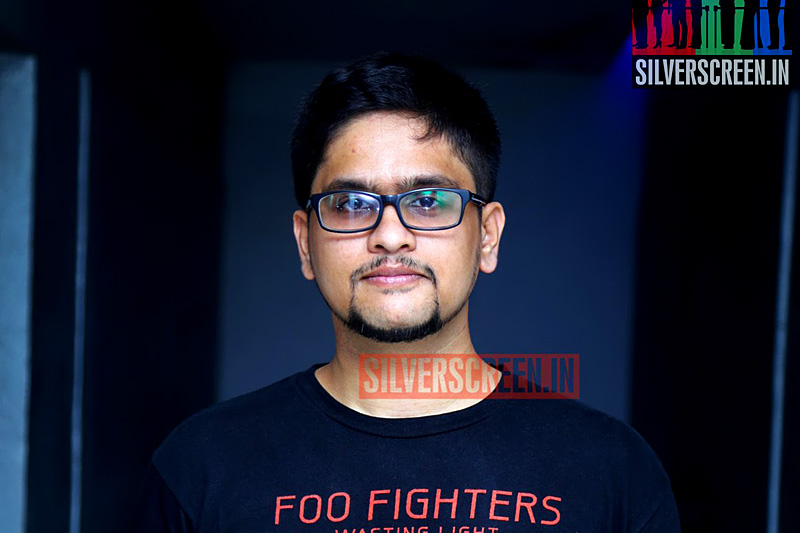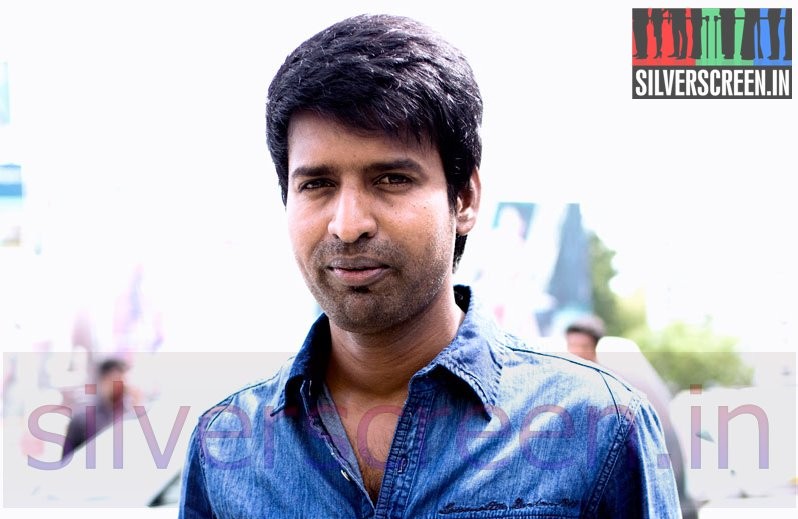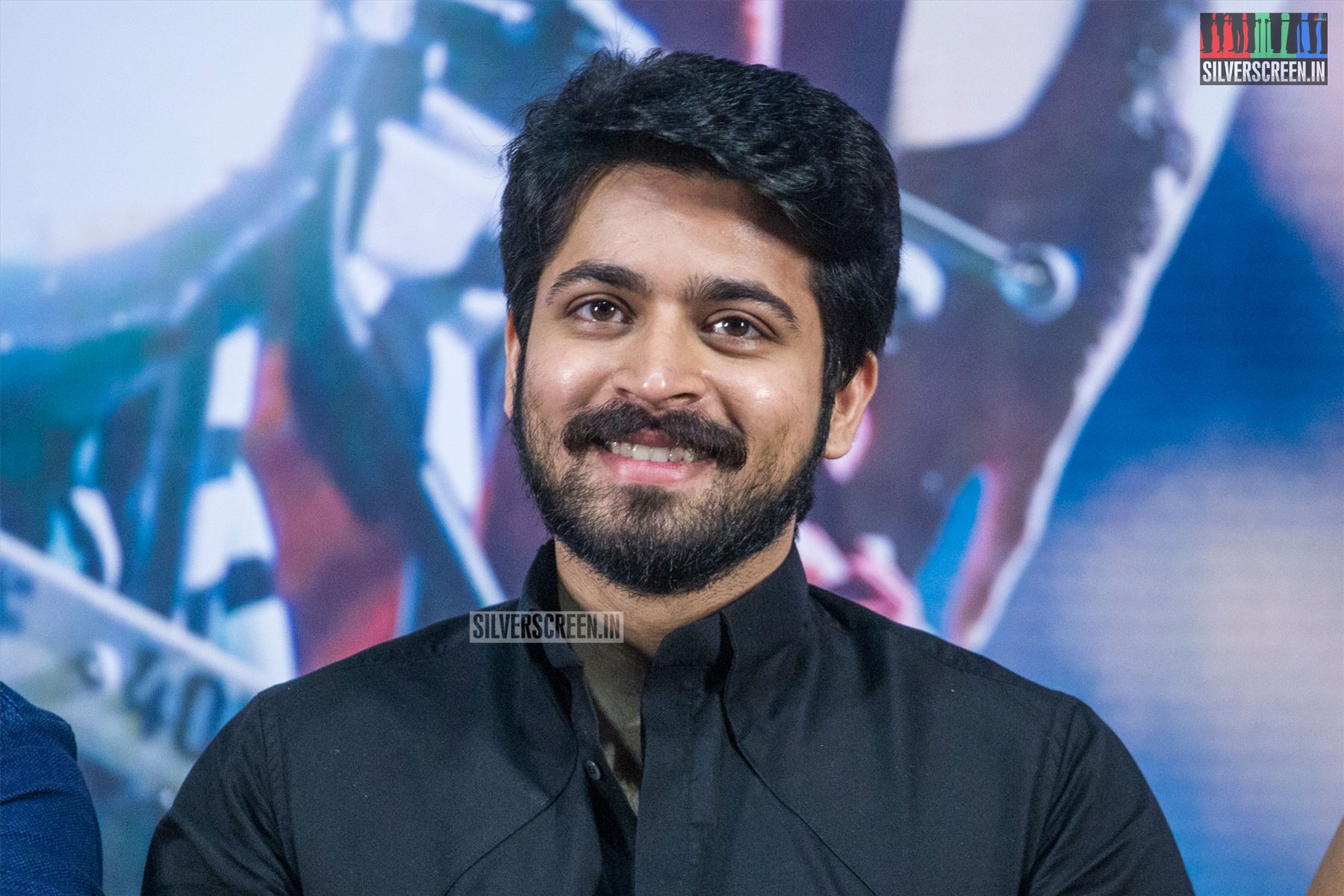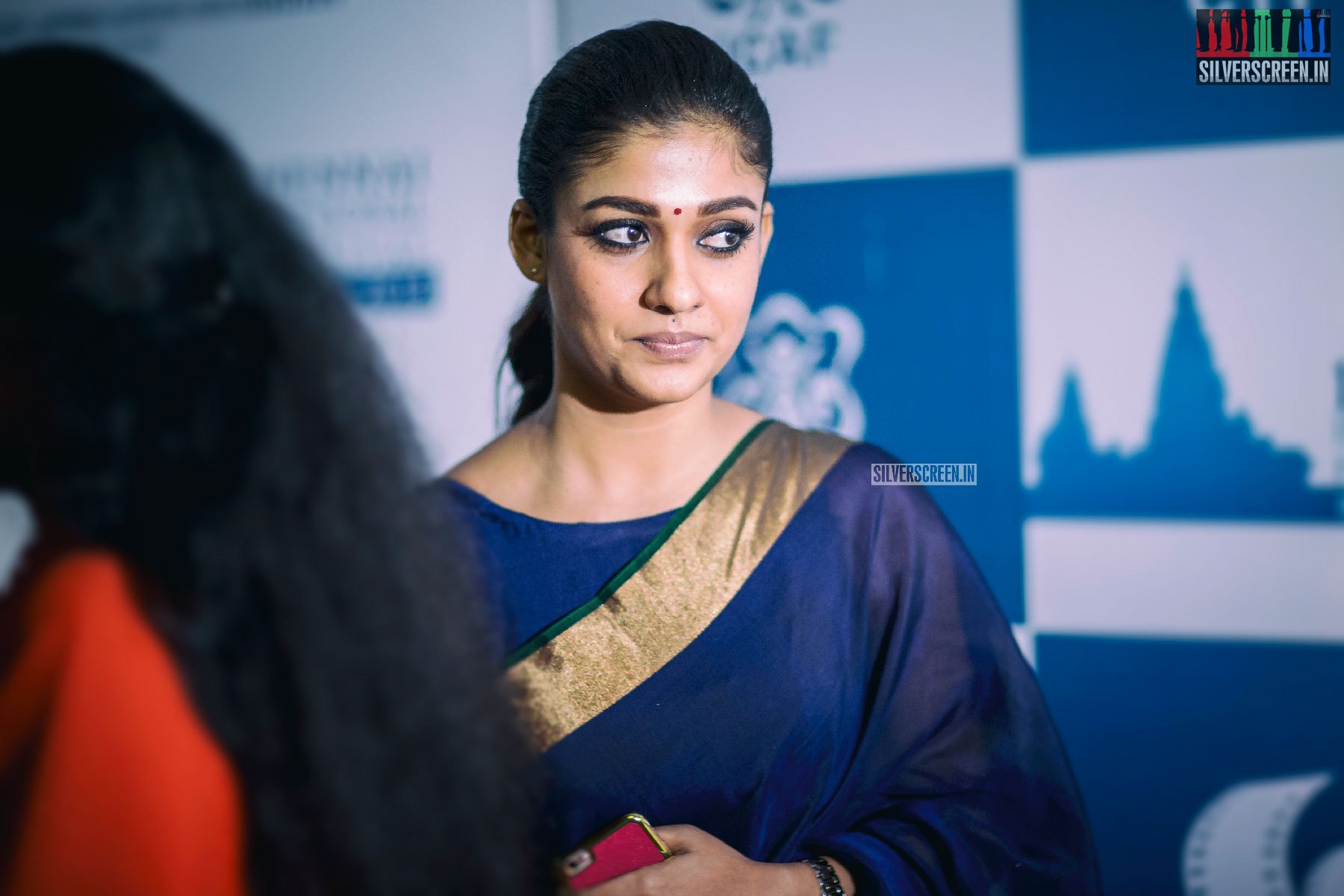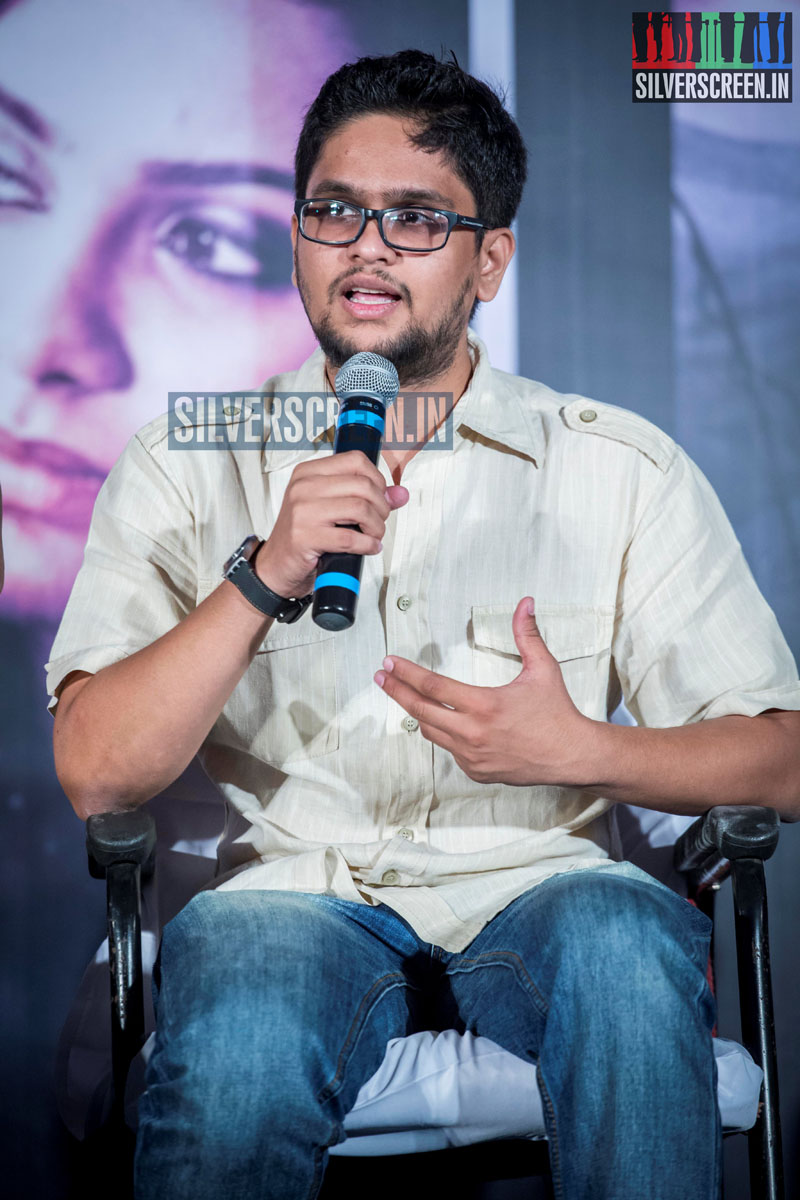 Music director K is no night owl like his peers. He steadfastly holds onto his 9-5 routine, doesn’t let cinema ‘consume him’, and is just as delightfully unusual as his music.
Music director K is no night owl like his peers. He steadfastly holds onto his 9-5 routine, doesn’t let cinema ‘consume him’, and is just as delightfully unusual as his music.
*****
K’s recording studio is nestled in a quaint little neighbourhood on one of the by-lanes of Nungambakkam. I find myself standing in front of an old house with winding stairs and a droopy little plantain tree. K, shorn of his boy band-esque locks, and in a T-shirt and sweats, greets me apologising for the ‘heat’.
It takes a while to get to his studio – it is housed on the terrace and can only be accessed by those winding stairs. A little breathless and very disoriented, we enter his studio – which thankfully, is quiet and calm. And just for that precise reason, this little room serves many purposes – K makes music here, and often, does the recording as well. “In fact, for Mugamoodi, I recorded six chorus singers in here. It sounded good and I don’t think anybody can tell the difference. This space is all you need. This is where it happens.”
Grooveplanet is the name of his ‘studio’, a long cherished dream. “There’s not much I’ve done with it right now. But yes, I do have some vague plans. I have an idea of what it can be in the future; but I am not sure when I’ll get to that.”
*****
There’s a giant computer, and a variety of musical instruments jostling for space in the small room. “I’m what you call a collector. I have a passion for finding and buying instruments, it has taken me to different places and this is what I have now,” he says pointing to the pile. From a metallaphone to a thumb piano, K has them all and delights in playing them for me.
A while later, we settle down to begin his tale.
And as it happens with such things, his tale begins at an engineering college.
*****
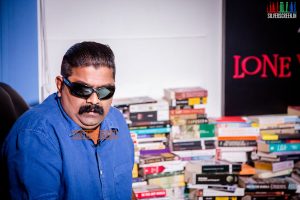 K spent four years studying for a Genetic Engineering degree. His interests lay elsewhere, but he reasoned that a degree to fall back on was nothing to sniff at too. “I was a decent student. Engineering, though? Not that much,” he laughs.
K spent four years studying for a Genetic Engineering degree. His interests lay elsewhere, but he reasoned that a degree to fall back on was nothing to sniff at too. “I was a decent student. Engineering, though? Not that much,” he laughs.
Though music was the dream, K tried hard to set up a fall back option. “When I finished college, I was a little afraid of the future. I got an offer from a tech company, but I had no clue about the kind of work they would need me to do.”
Mysskin had other plans for him, though. The director had been a friend of K’s family for a long time, particularly of his father’s. “They both shared a passion for books. In fact, Mysskin and my father met at a library. It was a magical thing, I would say. He encouraged me to continue making music. This was twenty years ago, when I was about eight. At the time he wasn’t a director, but a salesman. He promised me then that when he made a film, he’d make me the music director. As time went by, we lost touch.”
When Mysskin found success with Anjathey, he happened to meet K again. “It was the right time too. I was at crossroads. I didn’t know what I wanted to do. But he came into my life again and said, ‘music panriya?’”
But the music that K and his friends recorded did not find much favour with Mysskin. “I persevered and got to be a part of his film discussions. At that time, they were having a series of discussions for a possible project with Kamal Haasan. It was fascinating.”
K’s first as music composer was for a short film by Mysskin. “It was a project put together by Kiruthiga Udhayanidhi. It was like a rehearsal for my film composing career. Right after this, we started Yuddham Sei together.”
*****
Though his body of work is not large, K has crossed over to Malayalam films too, working with the likes of Rajeev Ravi. “Annayum Rasoolum came to me by way of Tapas Nayak, the sound engineer for Mugamoodi. I met Rajeev, but I didn’t think something would come out of it. He seemed like a really interesting person and so it was a pleasant surprise when he actually got back to me.”
The music was composed after the film was shot. “I haven’t seen it more than once, but from what I heard, it had a phenomenal response. It was my first hit film.” [quote align=’left’]”Looking back, I feel a little sad that Yuddham Sei didn’t get the recognition it deserved.”[/quote]
His one and only tryst with commercial film music – Onbadhule Guru – ‘backfired a little’. “I’d done movies like Yuddham Sei and Aarohanam. I didn’t want people to come to me for the same kind of films. So I went ahead with this one, it was a superb experience. But I am not in the mood to venture into that territory again. There’s no fun in doing mass music. Besides, I’m a very chilled out guy. With a mass film, there are expectations. I don’t want to be trolled or anything, by the fans and such.”
The experience proved to be enlightening for K. “I made a conscious decision to choose scripts I found unique. I have done some very interesting films in the past year. Mahabalipuram didn’t do really well, lots of reasons for it. It was a superb script, though and I really wanted it to win. It’s the same with Kallappadam, I think. Both these movies didn’t get the visibility they needed.”
Success or failure does not worry him much these days. “But looking back, I feel a little sad that Yuddham Sei didn’t get the recognition it deserved.”
******
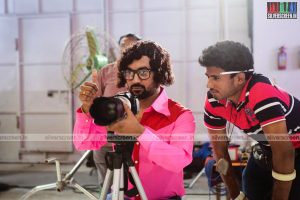
Cinematographer Sriram Santhish in Kallappadam Movie Stills
The main reason he agreed to do this was because it was a new job. “I have been doing music for the past four years. It was time I did something new. And the role wasn’t the usual boy meets girl stuff. It was cinema-related, and the character was that of an aspiring musician.”
The biggest thing he learnt on the sets was that acting was truly difficult. “We’re not going to be making fun of actors anymore, however bad they are.”
*****
Music is very difficult too, says K. “You have people like Ilaiyaraaja and AR Rahman working in the same industry. There’s not much they haven’t done. It’s very difficult to break it. I try my best to make sure that none of my music is conventional. I don’t want to sound boastful but in Kirumi, there’s a song that will be new. Completely new.”
In terms of western music, K doesn’t listen to the popular lot. “I can’t connect with EDM, dubstep and stuff like that. Obviously, that’s what this generation likes but I’ve always been more in love with retro sounds. Like the work of The Beatles, Led Zeppelin, CSNY. Old school rock, funk and jazz. Even in Indian music, I don’t like those new sounds. I love Ilaiyaraaja and AR Rahman.”
Though he’s had years of training in western music, K doesn’t think that only people trained in the arts can succeed in the industry. “There are a lot of people in the industry with no training at all. Some kind of knowledge is definitely necessary. There are sound engineers, directors and even writers who suddenly decide to take up composing. It is more intuitive. Classical training, not so much.”
K’s western music training was more of an added advantage. “The training makes people compose from an early age. You are encouraged to create. That has been of real help. Western music is polyphonic. There are many layers to it. Carnatic music has only melody, so that is something I am not able to appreciate.”
*****
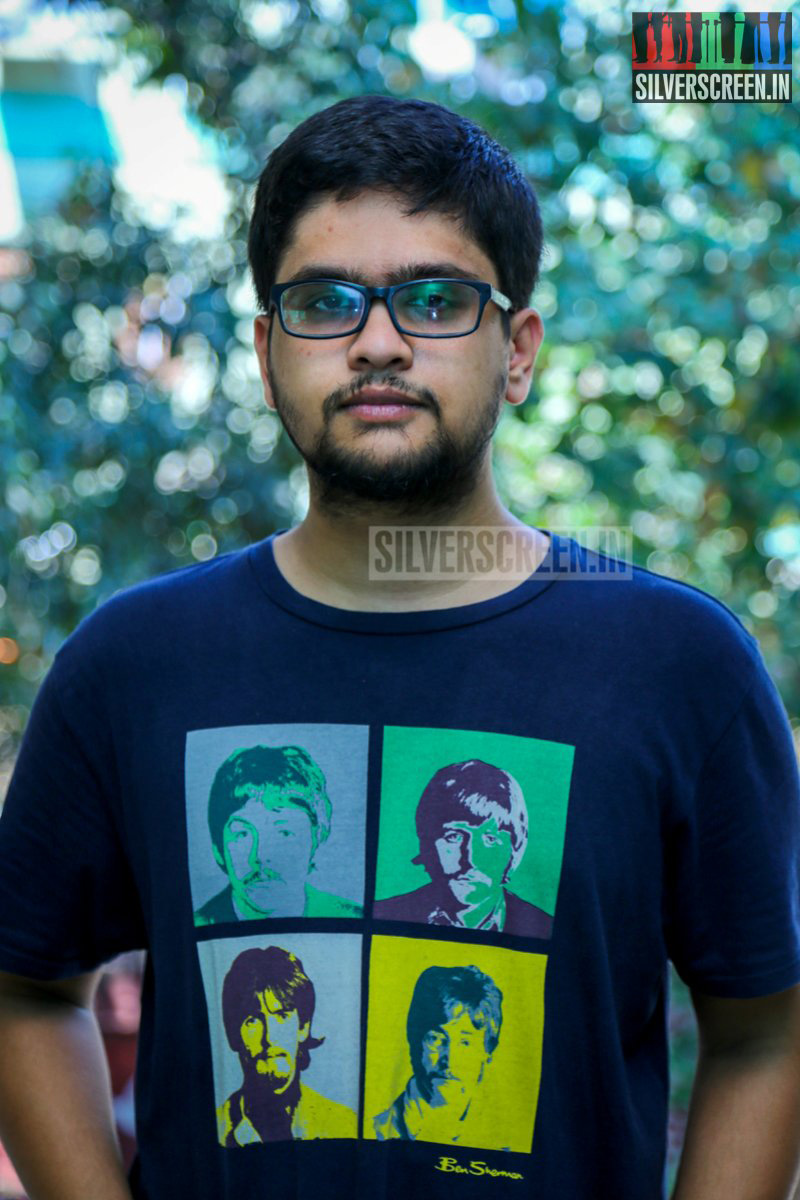 The singer in K has come for a lot of applause too. But that doesn’t mean he is going to be singing regularly. “I’m not going to be modest and say something like I’m a bad singer. I am decent. But I think a professional singer would do a much better job. For instance, I have a problem with maintaining pitch. A trained singer wouldn’t have that trouble. ”
The singer in K has come for a lot of applause too. But that doesn’t mean he is going to be singing regularly. “I’m not going to be modest and say something like I’m a bad singer. I am decent. But I think a professional singer would do a much better job. For instance, I have a problem with maintaining pitch. A trained singer wouldn’t have that trouble. ”
Despite that, K continues to sing for his own films. “What can I say? Directors seem to like my voice. Even for Kirumi, I’ve sung something.”
*****
K finds making music for films a little overwhelming. “There’s a lot that occupies my time. For instance, I have to generate options for the director, the background score composing, recording, re-recording and so much more. It becomes difficult when you sign on more than one film. It becomes tedious.”
Though he works a lot, K is not a ‘workaholic’. “I have made this my nine to five job. Usually, the stereotype is that music directors work through the night. It started with AR Rahman sir. But I’m the complete opposite. I am a day person. My life ends before eight pm every day.”
Setting boundaries is important to him. “Cinema consumes people. I’ve seen so many people, young and old, working tirelessly to make cinema. They give it their all, but the end result of all those late nights is glory, yes. But people die, too. All these guys, they don’t know what it is they’re working for and suddenly, it’s all gone. As Ilaiyaraaja said in an interview sometime back, ‘thirumbi paatha 20 varusham eppadi pochune therile.’”
That’s not the kind of life K aspires to lead. “It took a while for me to figure out a normal routine for myself. Initially, I did work late nights and let the music consume me. But that was unhealthy. And lonely. So I changed it for the better.”
Recommended
The few hours that he is able to snatch away from work, are spent in the company of friends, who do not shy away from pointing out his faults. “In fact, a friend told me that I’d put myself in a rut by using the same kind of sounds over and over again. The string section became a K trademark after Yuddham Sei, Mugamoodi and Aarohanam. This is something I slightly broke out of for Kallappadam.”
In his upcoming film Kirumi though, we will get to hear some ‘new sounds’, he says. “Hundred percent you won’t find flute, violin solos or anything like that. It will have a lot of trumpets, electronic sounds and synthesizers. I will break stereotypes with this one.”
*****
The Composer K Interview is a Silverscreen exclusive.
